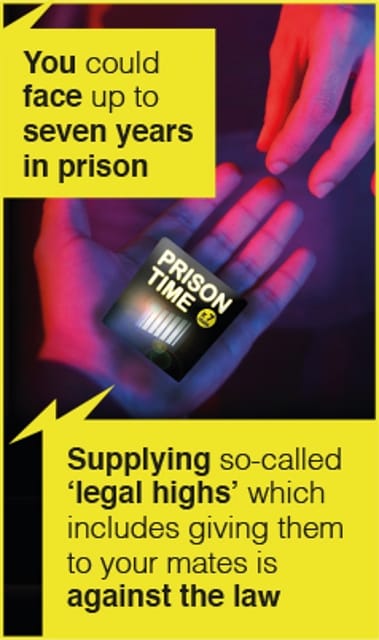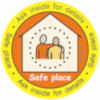Lethal Highs

West Mercia Police has launched the Lethal Highs campaign to warn people of the dangers of taking psychoactive substances. Formerly known as so-called 'legal highs', these substances are not safe and they are not legal.
What are psychoactive substances?
 Psychoactive substances, formerly known as so-called 'legal highs', are substances that are capable of producing a psychoactive effect when consumed by a person, excluding substances such as alcohol, tobacco, nicotine, caffeine and medical products.
Psychoactive substances, formerly known as so-called 'legal highs', are substances that are capable of producing a psychoactive effect when consumed by a person, excluding substances such as alcohol, tobacco, nicotine, caffeine and medical products.
They mimic the effects of "traditional" illegal drugs, such as cocaine, ecstasy and cannabis, and come in lots of different forms including powders, pills and herbal materials.
They have similar negative side effects to the drugs they mimic, such as breathing difficulties, heart palpitations, paranoia, psychosis, hallucinations, seizures, comas and even death.
These substances are now illegal and fall under the Psychoactive Substances Act 2016.
Not Safe
There is no way of you really knowing what these substances contain or how they will affect you. They can and do kill.
- In 2015 114 deaths were registered in England and Wales as a result of psychoactive substances, up from 82 deaths in 2014. (source: Office for National Statistics)
- In the West Midlands region there were 15 deaths registered in 2014 and six in 2015. (source: Office for National Statistics)
- They may have a harmless sounding name, or come in eye-catching packaging, but it certainly doesn't mean they have been tested or are safe.
- As with other drugs their effects can be devastating and, as the figures show, fatal.
- If you give psychoactive substances to your friends you are putting them at risk and breaking the law.
- For many of these substances there has been little or no research into the risks from human consumption.
- Visit or contact your local drug treatment centre for drug use support and advice.
- Local and national services which provide counselling and treatment can be found on the FRANK website.
Not Legal
 Under the Psychoactive Substances Act 2016 it is an offence to possess with intent to supply, offer to supply, produce, import or export psychoactive substances for human consumption. Alcohol, tobacco and caffeine are excluded, and there are also exemptions for food and medical products.
Under the Psychoactive Substances Act 2016 it is an offence to possess with intent to supply, offer to supply, produce, import or export psychoactive substances for human consumption. Alcohol, tobacco and caffeine are excluded, and there are also exemptions for food and medical products.- Punishments range from a prohibition notice, which is a formal warning, to seven years in prison.
- Supply includes selling them or giving them away for free to friends and offenders could face a custodial sentence of up to seven years.
- Importing psychoactive substances is also a crime, this includes ordering them online.
- We will take action where we find people committing these offences.
- The law is being enforced by police, trading standards officers, Border Force and the National Crime Agency.
- Illegal drugs such as cannabis, cocaine and ecstasy continue to be controlled under the Misuse of Drugs Act 1971.
- Psychoactive substances often contain substances which are illegal under the Misuse of Drugs Act. As well as potentially being very dangerous health wise, possession would in this case be an offence.
- People who have information about the supply of psychoactive substances and other illegal drugs are encouraged to contact us by calling 101, or this information can be passed on anonymously by contacting the independent charity Crimestoppers on 0800 555 111 or by visiting www.crimestoppers-uk.org



